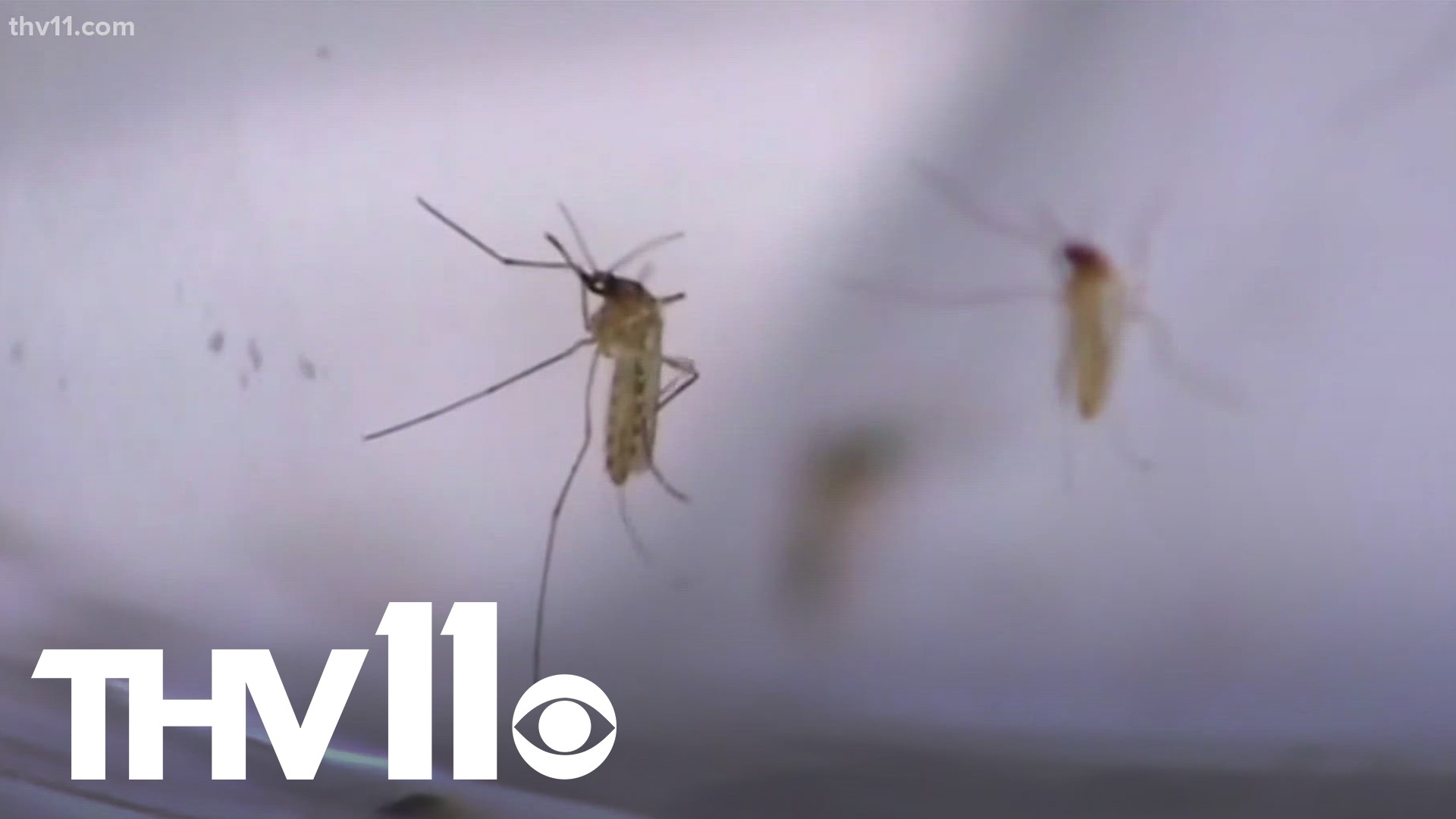LITTLE ROCK, Ark. — For the first time in decades, cases of malaria have been transmitted locally in the United States.
This week the CDC sent out a health alert that mosquitoes have spread a handful of malaria cases in the US, with four in Florida and one in Texas over the course of the last two months.
In Arkansas, the Arkansas Department of Health explained that the risk is low, but it is something to keep an eye on.
As the Traffic Services and Safety Director for North Little Rock, Kenny Stephens leads a fleet of mosquito trucks most summer nights, and he explained that many mosquitos have come out due to our many storms and lots of rain, combined with the hot weather.
"We're definitely helped reduce the amount that's out there in the neighborhood," Stephens added.
Though the trucks have been fighting an uphill battle.
Assistant Professor of Medical and Veterinary Entomology, Emily McDermott at the University of Arkansas said that climate change means we will be seeing more of the insect.
"In general, in a lot of places, we are seeing kind of increasing numbers of mosquitoes. Some of this has to do with longer, warm seasons," McDermott described.
While bites may be itchy, typically, mosquito-borne diseases like malaria don't spread locally in the U.S., Though for the first time in decades, the Arkansas Department of Health explained that we've seen a handful of those cases.
"Somebody comes in with imported malaria gets bitten by a local mosquito, and who picks up the infection and then bites somebody else," Dr. Atul Kothari, the Medical Director of the Outbreak Prevention and Response Branch at the Arkansas Department of Health (ADH) said.
Some first symptoms of malaria include a headache and a fever.
While travelers and doctors should keep an eye out, ADH officials explained that Arkansans who are staying local are at low risk.
"Overall, considering the number of cases that we see worldwide, I don't see that as a big problem," Dr. Kothari said.
Bug spray, whether it's from a can, wipe, or truck, can add another layer of protection.
"We usually recommend deet as the first line of defense. We do see that oil of lemon eucalyptus is fairly effective," McDermott added.
On top of mosquito protection, Dr. Kothari said bug spray and long clothing could help protect you from any tick-borne diseases as well.

